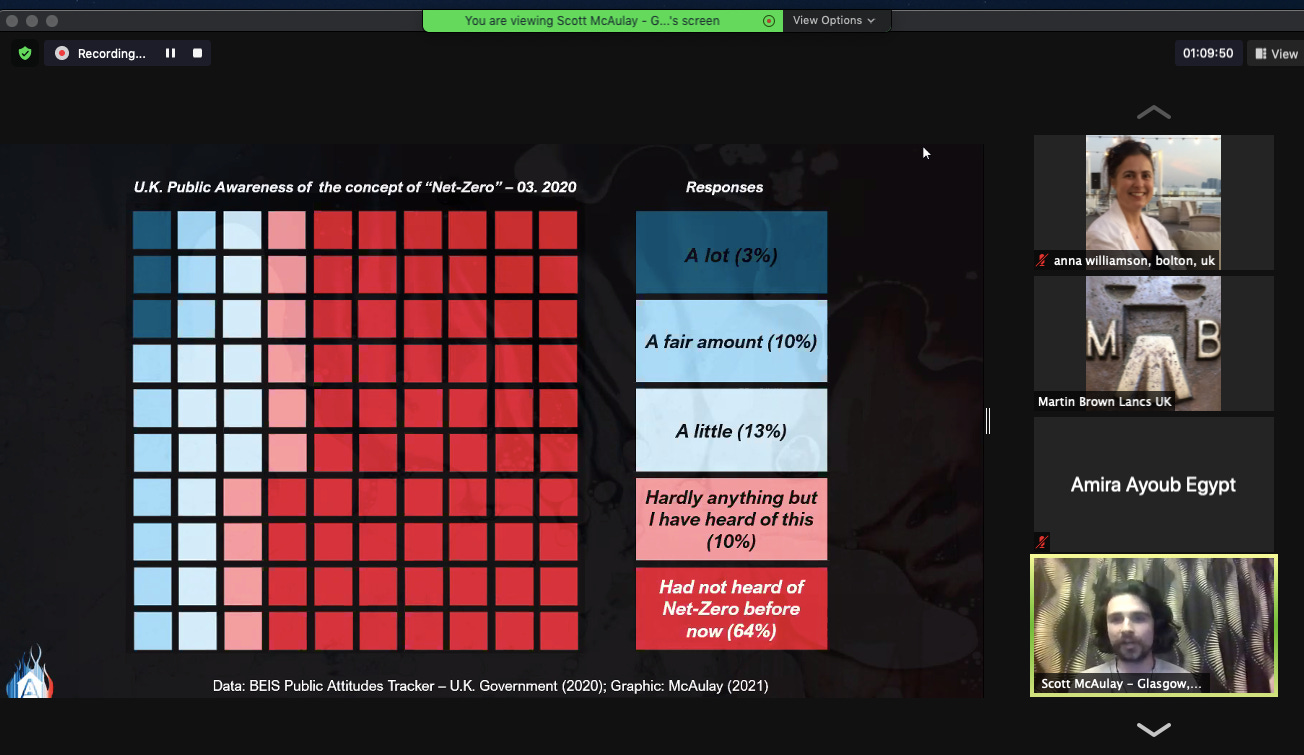Welcome to Regen Notes issue 4, your fortnightly newsletter of regenerative news, stories and more with a sideways focus on the built environment, curated by Martin Brown.
Economics
The Economics of Biodiversity: The Dasgupta Review, continues to get a lot of climate press coverage, but not that I have noticed within the built environment sector. As noted in RegenNotes 3, central to the Review, and to progress towards an economy that addresses the natural ecology is the inclusion of ecology as a core educational subject.
The UK is to set up green finance hubs in Leeds and London, as part of efforts to encourage lenders and insurers to invest in renewable energy and sustainable industry. Its mission will be to provide data and analytics to financial institutions to support their investment decisions.
“Who would listen to Bill Gates, billionaire, on how to save the planet,” asks Bill Gates. His new book ‘How To Avoid A Climate Disaster’ is receiving a lot of media coverage. Gates focuses on two numbers 51billion and Zero. 51bn being the amount of co2 emitted annually and 0 the number we need to get to by 2050. Worth checking out is his interesting view on what he calls “the juggernaut of emissions generated by the global construction cement and steel industries”
On which CNBC reported this week: “Cement giant turn to green hydrogen and carbon capture in efforts to curb emissions” A subsidiary of multinational building materials firm HeidelbergCement is working with researchers from Swansea University to install and operate a green hydrogen fuelled concrete production demonstration unit at a site in the UK.
Nature
An emerging and important approach to reconnection with nature is in granting natural features legal status. Amidst the US November 2020 elections, legal rights were granted to the Little Wekiva River, Orange County, Florida as having a “right to exist, flow, to be protected against pollution, and to maintain a healthy ecosystem.”
This was an approach that I raised for discussion on a recent workshop session for the ‘“Symbiotisch Bouwen” in the Netherlands. (Whose aim is to demonstrate the application of symbiotic construction by designing and building an innovation pavilion at Kloosters). A question raised was that If nature is seen to be a stakeholder to projects, with legal status, how would Nature be represented, and who will represent, around the briefing, design, construction planning tables?
This approach popped up on the wonderful BBC OutofDoors programme/podcast in a conversation with Allison Phillips UNESCO Chair of Integration at Glasgow University. Allison started the interview with her mihi, (a Maori greeting, introducing yourself through connectivity with land, culture, ancestry and arrival) and explores how Maori land stewardship in New Zealand, led to the recognition of land having a legal personality, where respect for the land as a living growing entity should be taken into account. Although broadcast at 6:30am on Saturday mornings, OutOfDoors is a real early morning treat, it is available through podcasts.
One successful organisation addressing the importance of nature within economics is Ecosia. “Planting forests, one search at a time”, Ecosia is a non-profit organisation that funnels any revenue that isn’t needed to cover its overheads, tax and marketing efforts towards tree planting initiatives. The company founded on green principles is responsible for less than 1% of search worldwide, compared to the whopping 91.39% market share held by Google.
However ... the company has planted almost 120 million trees to date, across 9,000 planting sites worldwide. One tree is planted for roughly every 45 searches made via Ecosia, at a current rate of 1.3 trees per second, suggesting five million searches are carried out every day using the service.
Literacy
The question remains how built environment economics will address and move to a regenerative economy, one that takes an “ecological world view in which nature is the model.” How will accountant and surveyor and educational institutions, courses and practices move to embrace a regenerative economic approach?
Many organisations and institutes have now declared climate and ecological emergencies, but as Scott Macaulay pointed out on Zoom Regen 26, emergencies don’t wait for the typical 3 or 5-year academic cycles - or for that matter the 3 or 5-year business planning cycles - they require immediate action.
Scott also illustrated how poorly we understand climate and carbon - not surprising as we have a number of different labels, each with differing descriptions for carbon reduction, carbon neutral, carbon positive and negative and so on.
Low levels of climate and carbon literacy may well account for the differing views on the Cumbrian Coal mine plans to open the first new deep coal mine in the UK in 30 years ... now being reviewed by Cumbria County Council following controversy about the proposal. Roger Harrabin for the BBC asked the question “What is the controversy about? “
“Part of our responsibility must be to inspire the next generation to become better than us and to reach higher than we have. Every project has a responsibility to educate and inspire the next generation, the next project, the next innovation”. FutuREstorative
Meanwhile … “Despite 14 years of generally good-quality education, it fell to me to teach myself the basics of the climate crisis”. Joe Brindle writing in the Independent took three A-Level subjects with distinct links to the climate crisis, and only had one lesson on climate” and “that some of the limited facts I was taught about the climate crisis were incorrect. Often, these came from outdated resources”
Following on the growing need for increased awareness on the current climate and ecological emergencies, (how did we get here, what can we, what should we do) it is good to see:
CAT (The Center for Alternative Technology) is offering free places to their Zero Carbon Britain: Live online courses in April, June and November to help support those that would be otherwise unable to attend.
Kiss the Ground is now freely available for educators. Narrated and featuring Woody Harrelson, Kiss the Ground is an inspiring and groundbreaking film that reveals the viable solution to our climate crisis through regenerating the world’s soils.
And Zoom Regenerative is shaping up on plans for climate literacy tutorials during May.
Material Transparency
With built environment news and attention fixed on the Grenfell inquiry, on toxic and flammable materials and on wider trust in certificates, it is worth considering both how far we have come and how slowly we are in changing. Going back, this week 50 years ago, Carole King released Tapestry, the UK currency went decimal and “Asbestos was a great building material”
In 1918, the U.S. government realized that asbestos workers were dying young. Study after study followed that initial report, but by the 1960s the asbestos industry was still promoting their product as an awesome building material and they were still neglecting to provide their workers with safety equipment or even tell them, “Hey, this stuff might kill you” because they wouldn’t want anyone to worry about their wonder product. And so it continued to be standard practice to use asbestos building materials in homes all the way through the 1960s and in some cases even longer than that.
We may have criminalised and largely removed asbestos but we still have many modern-day material equivalents in construction to which the above comments would apply. For a sobering analysis of today’s Asbestos industry related to PVC, see the reports from Jim Vallette at the Healthy Building Network
Zoom Regenerative
Zoom Regenerative or ‘the regens’ as the series is affectionally becoming known, doesn’t generally promote guests and topics until a week or so before - the focus being on the open exploration and emergent conversation as much as inspiring guest insights. However, two sessions to watch out for ...
EarthDay Special (22 April) North West England emerging as a regenerative hub.
Regenerative 101 basics in May - a series of one-hour tutorial webinars covering topics such as carbon literacy, biophilia, living build challenge, mindfulness, LCA’, circular economy and more.
Zoom Regenerative 26 featured Amira Ayoub, Living Building Challenge Ambassador and Living Futures Hero, sharing insights from her regenerative projects in Egypt and MENA region, along with Scott McAulay updating with news from Scotland on the Athroprocene Architecture School as we prepare in the build-up to COP26.
Zoom Regenerative 27 on the 23 February will feature John Bridge Studios in Preston and his insights behind two innovative R+D projects for the City, and John Renwick sharing insights into Vastu architecture illustrated through Vastu building case studies. Details and registration is open here
And finally, Zoom regenerative has been shortlisted for the ASBP 2021 “Ideas for a Better Built Environment” along with 5 other wonderfully inspiring ideas and ‘Regen’ friends - check out the finalists here Voting takes place at the Award Finals on the 25 Feb.





